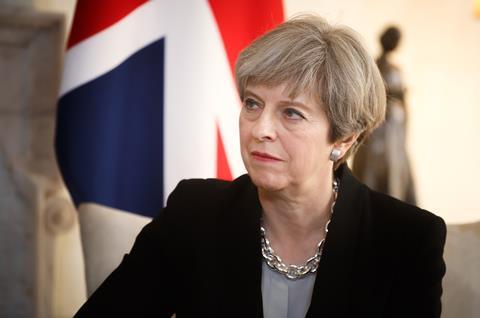By Fiona Reynolds (@Fireynolds), CEO, the PRI

Last week struck me as one full of climate contrasts from Japan to the UK, Norway and Australia. On the positive side, I started the week in Tokyo where we held a forum on the Taskforce on Climate Related Disclosures (TCFD) at the Tokyo Stock Exchange with a focus on both companies and investors. With over 400 participants from investors, business and government departments, we needed an overflow room with many watching the session on a big screen.
Japan has now announced a TCFD consortium with just under 170 Japanese organisations committing to support TCFD. In addition, Prime Minister Abe announced that he will host the world’s first TCFD summit in Tokyo in October which the PRI has committed to assist with. The action from Japan is a further indicator of the influence that the TCFD has gathered in short space of time. Disclosure needs leaders – and Japan is leading the way.
Another measure of this support has been the number of investors responding to the PRI climate indicators that are based on the TCFD recommendations. These were introduced in January last year and whilst the indicator questions were voluntary in 2018 and 2019, the responses exceed our expectations with close to 500 investors representing US$42 trillion reporting to the PRI at the end of March. In the next few months we will be publishing the outcomes from the 2019 reporting cycle together with climate transparency reports from around 200 investors who have opted to make their responses public.

From 2020, it will become mandatory for all PRI signatories to report against the TCFD strategy and governance indicators. The PRI reporting is not designed to replace the TCFD public reporting, rather it’s for investors to start using the framework and integrate relevant information into their public climate disclosures.
Whilst I was in Tokyo, I also spoke at G20 and F20 events about what investors want to see from G20 leaders, including a strengthening of NDCs and an increase in ambition.
Increasing ambition is not just about high-level plans, it also includes phasing out of fossil fuel subsidies and thermal coal, the need for carbon pricing and incentives for clean technologies and energy to enable accelerated decarbonisation.
High ambition also means performance standards to change behaviour and encourage energy efficiency, climate disclosure in line with the TCFD and the critical element of just transition plans for workers, sectors and communities impacted by the associated structural and economic change. On this last point, I also think that revenue raised through carbon taxes could help fund just transition plans, adjustment programmes and other climate-related programmes.
High ambition also means performance standards to change behaviour and encourage energy efficiency, climate disclosure in line with the TCFD and the critical element of just transition plans for workers, sectors and communities impacted by the associated structural and economic change
It was also a good opportunity to showcase the work being undertaken by investors through Climate Action 100+ and the PRI’s work on the Inevitable Policy Response (IPR) – setting out our belief and simple argument that a failure to limit heating at 1.5 degrees will be so disruptive to the world economic system and to society as a whole that broad scale, abrupt policy responses will be inevitable, and that the longer action is delayed, the more intervention will be required by governments and regulators.
It’s our belief that without action now, at scale, that this intervention will happen in the next decade, mostly likely sooner, with all the volatility and policy risk that rapid political shifts represent for investors.
While it was terrific to hear about the work of so many organisations that seem to recognise the climate emergency at these meetings, the talk in the corridors was that we shouldn’t expect much from the G20 leaders’ summit as the US, Russia and Saudi Arabia all look to block too much discussion on sustainability issues in general and specifically on climate.

It was therefore encouraging to hear from the UK government that they will commit to a net-zero target by 2050. The PRI, along with many other organisations, had recently written to Prime Minister May asking her to make this commitment and we welcome her leadership. We hope other nations will follow.
In addition, it’s fantastic that Germany recently pledged to be carbon neutral by 2050, and has reportedly supported an EU-wide target to cut net carbon dioxide emissions to zero by 2050. This backing is particularly significant as it increases the chances that national leaders will agree to an EU-wide 2050 goal in Brussels this week.

In other country-level actions, Norway’s national parliament voted last week to instruct its sovereign wealth fund to divest from more US$13 billion from oil gas and coal companies and move up to $20 billion into renewable energy.
And then there was Australia, where the contrast could not have been starker. We have seen the recent election result as a setback for climate action, with regulatory approvals now being granted to open development of the Adani thermal coal mine in Central Queensland and behind it, potential exploitation of other coal deposits in the giant Galilee Basin.
It seems extraordinary in a nation so blessed with renewable energy, rare earths, and the technological capability to be become a global clean energy exporter in the 21st century that it would be consciously increasing the carbon exposure of its resources sector via thermal coal. The Norwegian divestment decision is a global pointer to where institutional capital increasingly sees both risks and opportunities in energy. Australia seems to be choosing the former and ignoring the latter.
This week we will continue with climate positives for investors with the release on Tuesday of the EU TEG Technical Expert Subcommittee for the Taxonomy releasing its first report. The aim of the taxonomy is to support investors in scaling up sustainable investment and the PRI has led as the rapporteur on the taxonomy with an incredible amount of effort having gone into its development. I particularly want to acknowledge the work of our team, led by Nathan Fabian our Chief Responsible Investment Officer. Look for more from the PRI this week.
All in all, we’ve seen positives from Japan, the UK, Norway and the EU, some ambivalence from the G20 and alarm bells in Australia. Climate signals are everywhere and the SR15 report with its 2030 clock keeps ticking. We are encouraging governments to act with urgency. I used last week to give my regular reminder, that when it comes to climate change, unlike the global financial crisis of a decade ago, governments, business, the financial sector and investors won’t be able to say that they didn’t know, that they couldn’t see it coming and that they didn’t have time to act.
It’s not warning that is lacking – it’s meaningful action.
This blog is written by PRI staff members and guest contributors. Our goal is to contribute to the broader debate around topical issues and to help showcase some of our research and other work that we undertake in support of our signatories.
Please note that although you can expect to find some posts here that broadly accord with the PRI’s official views, the blog authors write in their individual capacity and there is no “house view”. Nor do the views and opinions expressed on this blog constitute financial or other professional advice.
If you have any questions, please contact us at [email protected].








